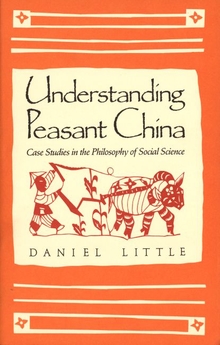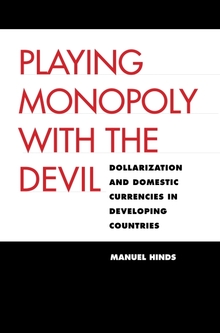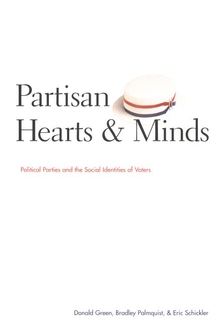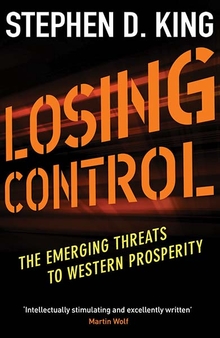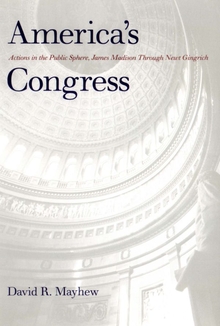Understanding Peasant China
WARNING
You are viewing an older version of the Yalebooks website. Please visit out new website with more updated information and a better user experience: https://www.yalebooks.com
Case Studies in the Philosophy of Social Science
Daniel Little
"This is an invaluable book for the China field in particular and peasant studies more generally. The clarity of presentation, the attention to logic an the subtlety of argumentation will make this book a standard reference to how to construct an argument in the field. Reading Peasant China has been an education."—Presenjt Duara, The Journal of Peasant Studies
"Little’s critical examination of some of the key issues in modern studies of the Chinese countryside is authoritative and telling. . . . Each case is presented lucidly and fairly, making the book of value simply as a means of refreshing one’s memory about the fascinating arguments of the authors concerned."—Graham Hutchings, Asian Affairs
"This is such an excellent book that although it is written by a philosopher on peasant China, it should be of interest to most sociologists. . . . A very well-written book. It is clear; it focuses on significant methodological, theoretical, and substantive topics; it clarifies controversial issues; and it advances our understanding on historical development in agrarian societies. As such, it should be of interest not just to philosophers and China specialists, but to sociologists as well."—Alvin Y. So, Contemporary Sociology
"Students of agrarian structures and movements and rural development in China, Asia, and even elsewhere are fortunate that Daniel Little chose their bailiwick in which to exercise his skills as a philosopher of social science. . . . The arguments are detailed and illuminating but also appropriately balanced. . . . Understanding Peasant China is itself an example of what can be accomplished by synthetic work; for it is a most welcome new development in the growing eclecticism of social science. One can only hope that it will inspire some of Little’s philosophical colleagues to make other spheres of social science the beneficiaries of their scrutiny."—Marc Blecher, American Political Science Review
"The book should be of interest not only to philosophers of social science, but also to practitioners (especially China specialists)."—P. Steven Sangren, American Anthropologist
"This book addresses many audiences. Scholars of China and Southeast Asia will find critiques of much important work in their fields. Social scientists interested in rational choice theory, moral-economy approaches, regional systems, or hermeneutical anthropology will be treated to a philosopher’s rigorous logical scrutiny of these approaches. Finally, philosophers will be led through the relatively exotic terrain of Asian studies in the course of an inquiry into the nature of generalization and explanation in the social sciences. . . . They will profit from this attempt to combine the concerns of Asian studies and rigorous social science."—Joseph W. Esherick, Annals of the American Academy of Political and Social Science
"Philosopher Daniel Little’s volume is an unusual one, being a thorough evaluation of key controversies within Asian studies by an outsider. . . . Asia specialists will be most interested in Little’s intelligent and generous critique of the historical debates. . . . Most will benefit from reading his careful and informed analysis of these four debates central to modern Chinese social history."—Tim Wright, Journal of Asian Studies
"Scholars interested in the logical integrity of key historical arguments will find his criticisms helpful. I found them interesting and far-reaching."—Gordon Bennett, Social Science Quarterly
"Little examines six important controversies in the field to discover whether a careful philosophical analysis would resolve the underlying disputes. . . . Little’s book is an excellent tool for training graduate students on the formation of hypotheses, especially given the prevalence of the case-study method in the social sciences. . . . This volume therefore serves both as a useful summary of current controversies in the field, and as a handy compendium for discussions of method and strategy in research."—Jeremy Paltiel, Canadian Journal of Political Science
"Understanding Peasant China is philosophy of social science at its best. Through a series of detailed case studies, Daniel Little shows how the distinctive rigor and clarity of the philosophical mind can help make a better social science. At the same time, he demonstrates the value of an approach to more abstract concerns about theory, evidence, and explanation that is rooted in a grasp of the actual practice of social inquiry. This is an unusual and talented work."— Charles R. Beitz, Swarthmore College
"A rich and judicious work. Little’s searching assessment of the debates about agrarian Asia is a model of logic-chopping close analysis. He never loses sight of the larger quarry: the philosophy of social science practice."—James C. Scott, Yale University
"This clearly written and wide-ranging book will be of interest to working social scientists as well as to philosophers."—Julius Sensat, University of Wisconsin, Milwaukee
Publication Date: January 29, 1992

